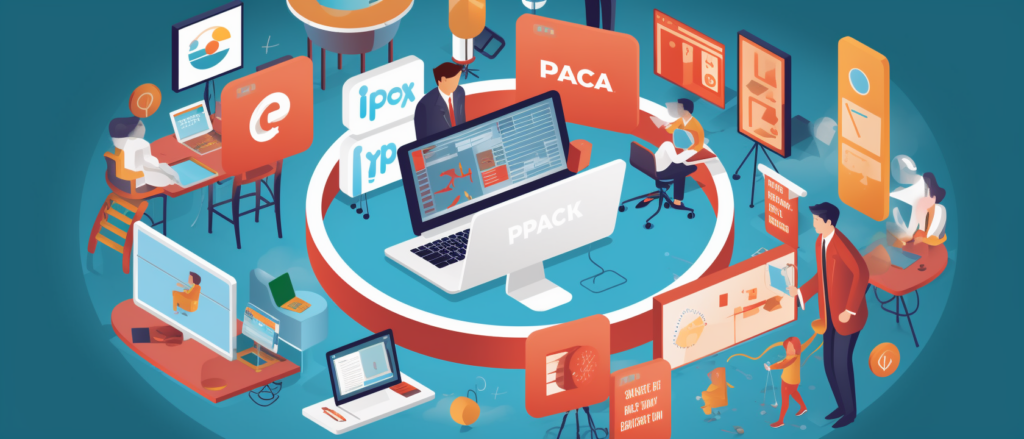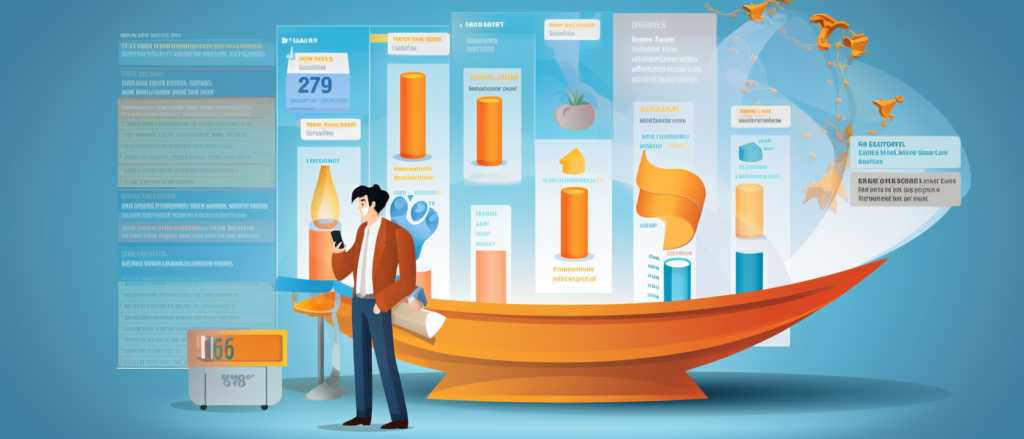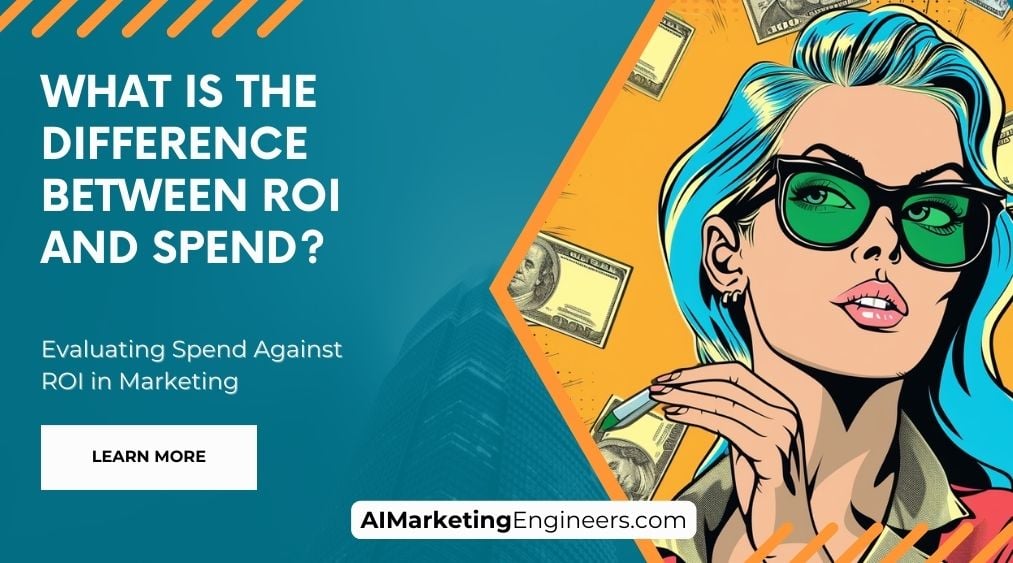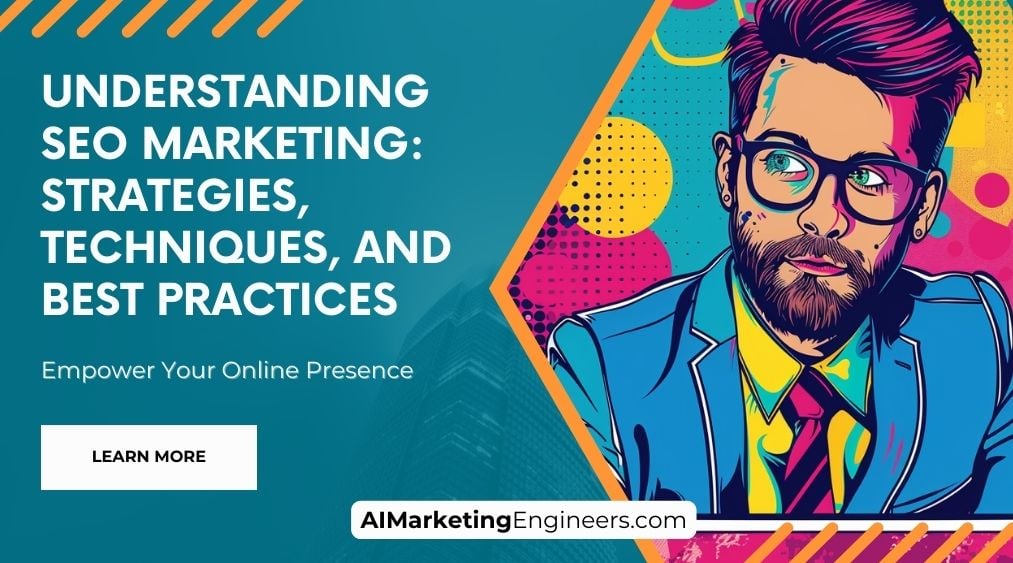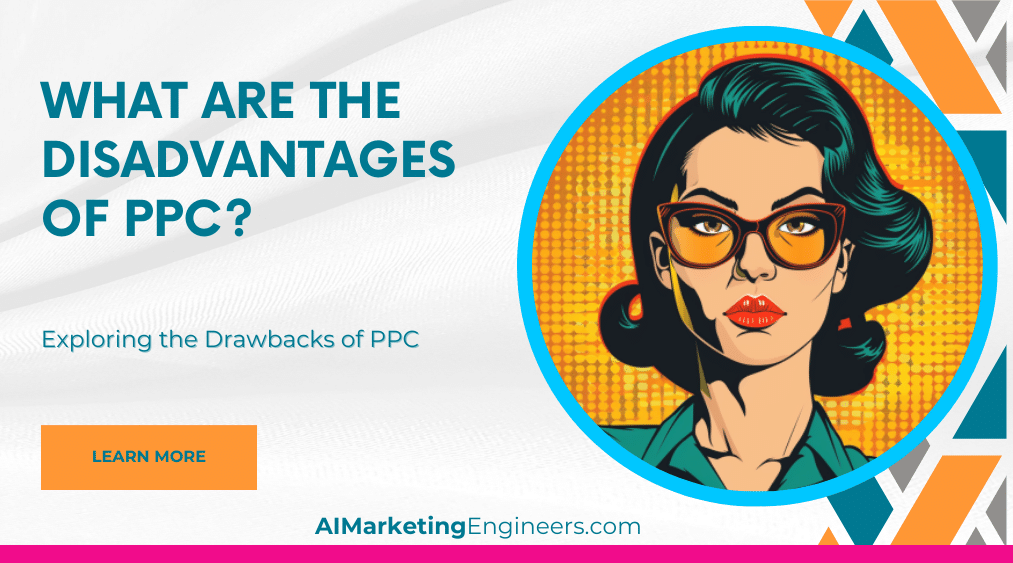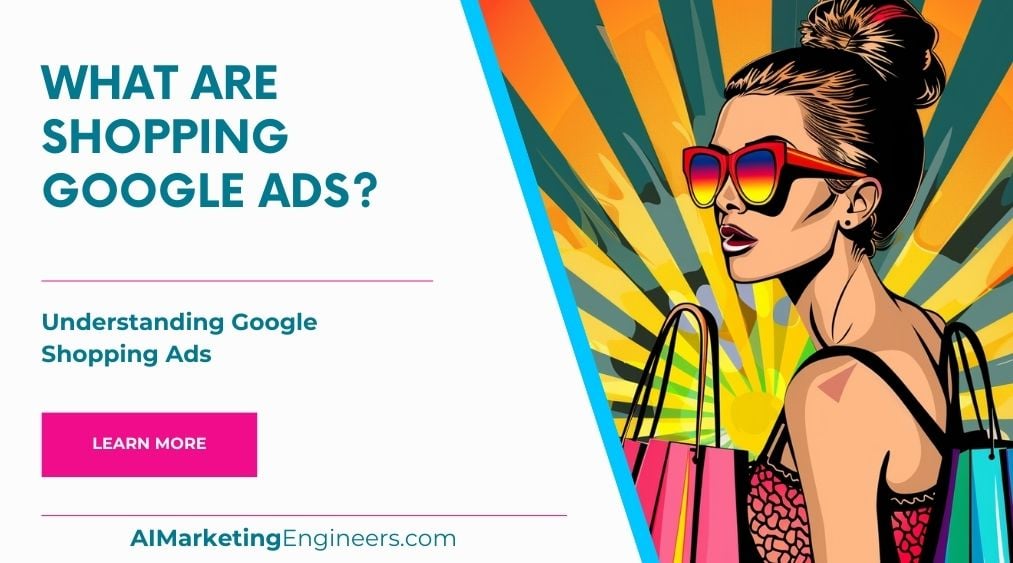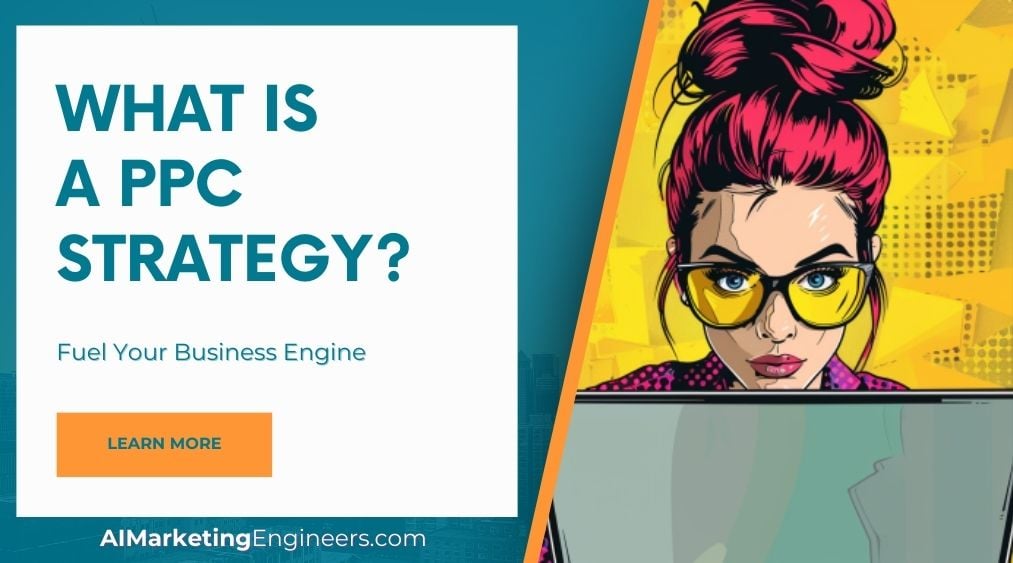Key Takeaways
✅ Definition: Understand that PPC stands for Pay-Per-Click, a model where businesses pay each time their ad is clicked. It’s the gateway to enhancing your site’s visibility and engaging with potential customers actively seeking what you offer.
✅ Key Benefits: PPC can be your secret weapon for fast results. With instant traffic boosts and precise targeting, gain the power to connect with the right people at the right time, all while maintaining complete command over your advertising expenditure.
✅ Metrics and Optimization: Keeping an eye on KPIs like click-through rates and conversion rates isn’t just number-crunching; it’s about understanding your campaign’s heartbeat. Use these insights to refine your approach and make every cent of your ad spend count.

Introduction
Have you ever wondered what really makes the digital world go round? It’s a realm where every click could be the next customer, the next sale, or the next step towards your business soaring high. That’s the magic of Pay-Per-Click (PPC) marketing. But what does PPC actually mean in this buzzing online marketplace?
In the coming content, we will unwrap innovative insights and fresh takes on traditional tactics. We’re diving into how you can maximize revenue, make every dollar count, and sharpen your strategies for a return on ad spend that’ll have you grinning ear to ear. Stay tuned, because by the end of this guide, you’ll not only know the what’s and why’s but also the how-to’s for PPC success that can transform your online presence. Here’s to turning clicks into customers and ads into leads. Are you ready to see what PPC can really do for your business? Let’s get started.
Top Statistics
| Statistic | Insight |
|---|---|
| Global PPC Ad Spend: Expected to hit $133.17 billion in 2021, and grow to $154.81 billion by 2023. (Source: Statista) | PPC is rapidly expanding, a sign for businesses to invest wisely and align ad spend with industry growth. |
| Google Ads Dominance: Google Ads holds a market share of 91.45% in 2021. (Source: Statista) | With this overwhelming market presence, Google Ads is pretty much the playing field where you want your brand to compete. |
| Click-Through Rates: The average CTR for Google Search is 3.17%, while Display Network is 0.35%. (Source: WordStream) | These numbers highlight the importance of targeting and ad quality to ensure engagement with potential customers. |
| Mobile Click Dominance: Mobile devices accounted for 65% of all Google ad clicks in 2020. (Source: Search Engine Land) | Can your marketing strategy afford to ignore mobile users? Clearly not. The future is mobile, and it’s here. |
| Industries with Highest CPC: Legal, Dating & Personals, and Consumer Services lead with the highest CPCs. (Source: WordStream) | Knowing industry benchmarks for CPC can guide your budgeting and bidding strategies for maximum ROI. |
Understanding PPC (Pay-Per-Click)
Ever wondered how businesses pop up at the top of your Google search or in your social feeds when you’re just thinking about those products? That’s PPC at work. Pay-per-click is simple; you run your ads and you pay when someone clicks on them. But the charm lies in its precision – like throwing a dart and hitting the bullseye. Back in the day, advertising was like shouting in a crowded room, but PPC? It’s more like a savvy shopkeeper who knows just when to whisper an offer as you pass by.
How PPC Works
Let’s peek behind the curtain of PPC advertising. It feels like magic, but it’s actually a mix of good planning and smart strategy. You bid on keywords like you’re in an auction, trying to grab that perfect antique. But it’s not just about who bids highest; enter Quality Score and Ad Rank. These are the secret sauces that decide if your ad deserves the spotlight. And oh, the variety – search ads, display ads, social media sizzlers, even video vignettes.
Benefits of PPC Marketing
Now, why bother with PPC? Imagine being able to put up a billboard that only those interested can see. That’s PPC – it boosts your visibility and brings visitors directly to your storefront, i.e., your website. You can whisper into the ears of just the right age group, in just the right location. And the best part? You can track every penny you spend, calculating the ROI down to the last click. Plus, you can start, stop, and adjust your ads as if they’re clay in your artist’s hands.
Setting up a Successful PPC Campaign
Forging a successful PPC campaign is part art, part science. Begin with keyword research to find the magic words that your customers use to find services like yours. Crafting your ad copy is like writing a love letter; every word should make them want more. The landing page? That’s your first impression – make it sleek, make it matter. Then there’s the game of bidding. Decide how much you’re willing to pay for that click – your digital handshake with potential customers.
PPC Platforms and Tools
Choosing the right PPC platform is like picking a stage for your one-man show; it has to be perfect. With Google Ads leading the pack, Bing Ads, and Facebook Ads offer their own theaters of operation. You need to know where your audience likes to hang out, that’s where you put up your show. And don’t forget the tools; they’re like your stage crew, helping you set the scene, measure the applause, and fine-tune your performance to standing ovations.
Common PPC Challenges and Tips for Success
Not all PPC stories are success stories. Like any good tale, there are villains – the pitfalls and mistakes that can trip up the even seasoned marketers. Avoiding these and adhering to best practices can paint your campaign in golden hues. Embrace continuous learning because PPC is an ever-changing beast, with trends and updates popping up as quickly as ads on your screen. Stay sharp, stay curious.
By diving into PPC marketing with a clear mind and the right tools, you can turn clicks into customers and searchers into shoppers. It’s not just about getting your name out there; it’s about creating a presence that resonates with the people who need what you’re offering. And who knows? With the right approach, you might just find that PPC becomes your business’s best friend. So, are you ready to step into the world of PPC and unlock its potential for your business?
AI Marketing Engineers Recommendation
Recommendation 1: Harness the Power of AI-Driven Keyword Optimization: Have you noticed how you type something into a search engine and immediately see ads as if someone read your mind? Well, in the world of PPC, this isn’t magic but the result of AI-driven keyword optimization. For your campaigns, utilize tools that leverage AI to analyze search data and trends. This approach will help you find those golden keywords that are not just popular but will connect you with people who are ready to say ‘take my money’. Invest in smart tech that refines your keyword strategy with data insights, potentially decreasing cost-per-click (CPC) while boosting conversion rates.
Recommendation 2: Embrace Audience Targeting With a Human Touch: Ever felt like an ad was speaking directly to you? That’s no coincidence. Today’s trend is all about getting personal. Build detailed audience profiles by going beyond age and location. Find out what makes your audience tick, what time they’re online, what devices they use, and even what worries keep them up at night. Use this data to tailor your PPC ads, crafting messages that feel like they’re just for them. By focusing on the humanity behind the data, you might just see your click-through rates soar as people see ads that truly resonate.
Recommendation 3: Prioritize Mobile Optimization for Greater Engagement: Here’s a no-brainer: everyone’s on mobile these days, right? But did you know that more than half of internet traffic comes from mobile devices? That’s why it’s crucial to have your PPC campaigns mobile-friendly. Don’t let your ads be the annoying ones that don’t fit on the screen or take ages to load. Optimize your ads for mobile users, ensuring they’re fast, visible, and engaging on small screens. And take advantage of mobile-specific features like click-to-call or location extensions – these nifty tools can make your ads more helpful and increase their chances of snagging some attention (and clicks) from on-the-go folks.
Relevant Links
Maximize Your Marketing Efforts with Cutting-Edge PPC Strategies
– Revolutionizing PPC with AI-Generated Texts: Boost Your Google Ads Now!
– Unlock the Secrets to PPC Success: Expert Tips and Insights
– Navigate the World of PPC with Ease: Essential Platforms and Tools for Marketers
– PPC Demystified: Learn the Art of Keyword Research and Campaign Management
– Overcome PPC Challenges: Best Practices for a Winning Campaign
Additional Resources
– Enhance Your Affiliate Marketing Techniques: A Guide for Earning Passive Income
– Leveraging ChatGPT for Marketing: A Modern Approach
– Step-by-Step Prompt Engineering for Marketers
– Grow Your Small Business with ChatGPT’s Innovative Solutions
– Discover the Top Digital Marketing Trends Shaping 2024
Conclusion
So, what does PPC mean in marketing? We’ve walked the winding roads of pay-per-click together, haven’t we? Starting with the bare bones, where PPC was this newcomer on the block, all the way to realizing that it’s an essential tool in our shed. We’ve understood how this model stands out – you know, where you only pay when someone is genuinely interested and clicks on your ad. Now, you’ve seen how PPC works like a charm, thanks to its blend of auctions, scores, and rankings, all to get your name up in lights. We’ve delved into how it can bring more eyes to your website, connect you directly with the folks who are looking for what you offer, and let you see clearly how well your ads are doing.
And remember when we chatted about setting up a successful PPC campaign? You got the inside scoop on picking the right keywords, crafting those catchy ads, making your landing pages welcoming, and managing that budget of yours like a pro. Then there’s the toolbox we opened up – those platforms and tools that can make the job a bit more doable. We can’t forget those sneaky pitfalls, but you’re armed with best practices and tips to keep you on the straight and narrow. And yes, we talked about staying fresh and adapting, because PPC is as much about keeping up as it is about starting up.
So, where do you go from here with PPC? It’s about rolling up your sleeves and getting those hands dirty. Experiment with different strategies and see what turns the needle for your business. You’ve got the foundation now; it’s time to build your empire, click by click. It’s okay to be a bit nervous—but can you imagine the excitement when your first optimized ad starts bringing in traffic, and your website starts buzzing with new visitors? PPC in marketing is no magic – it’s hard work mixed with loads of creativity. The path is laid out for you, so why not take that first step? And hey, if you ever feel stuck, there are plenty of resources to guide you back. Go on, give it a whirl! Your next customer could be just one click away.
FAQs
Question 1: What does PPC stand for in marketing?
Answer: PPC means Pay-Per-Click. It’s a kind of advertisement on the internet where folks pay each time someone clicks on their ad.
Question 2: How does PPC work in marketing?
Answer: It works like this: Businesses make ads and choose certain words that matter to what they’re selling. When someone searches for these words, the ads might pop up. If someone clicks on one of these ads, that’s when the business pays up.
Question 3: What are the benefits of using PPC in marketing?
Answer: PPC’s pretty handy. It lets you show your ads to the right people, see results quickly, track how well your money’s spent, and catch folks right when they want to buy something.
Question 4: Which platforms are commonly used for PPC advertising?
Answer: The big guns are Google Ads and Bing Ads, but you’ll also find PPC on social media sites like Facebook, Twitter, and LinkedIn.
Question 5: How do I create a successful PPC campaign?
Answer: For a PPC campaign that works, pick the right words, write ads that get people clicking, direct them to pages that make sense, set a budget that’s realistic, and keep an eye on things to tweak and improve.
Question 6: What is the difference between PPC and SEO?
Answer: PPC costs money every time someone clicks, but SEO doesn’t cost a dime—it’s all about tuning up your website so it naturally shows up in searches. PPC is quick; SEO takes its sweet time but lasts longer.
Question 7: How do I measure the success of my PPC campaigns?
Answer: Look at stuff like how many folks click on your ad compared to how many see it (that’s CTR), how many folks take the bait (conversion rate), what you’re shelling out per click (CPC), what each new customer costs you (CPA), and what you get back compared to what you spend (ROAS).
Question 8: What are some common mistakes to avoid in PPC marketing?
Answer: Steer clear of choosing the wrong words, slacking on your ad and landing page game, fumbling with your budget, not watching your campaigns, and not trying out new ad ideas.
Question 9: How can I optimize my PPC campaigns for better performance?
Answer: To sharpen your PPC campaigns, keep tabs on how they’re doing, test out different ads, tweak your bids and budgets, and get precise with who you’re targeting.
Question 10: What are some advanced PPC strategies for experienced marketers?
Answer: If you’re ready for the big leagues, give things like remarketing, aiming at specific audiences, automatic bidding, dynamic search ads, and leveraged customer matching a try.
Academic References
- Hoffman, R. D., & Novak, T. P. (2009). “Pay-per-click advertising: An overview of sponsored search on the internet.” Journal of Interactive Marketing, 23(3), 181-192. This cornerstone paper provides a deep dive into the world of PPC, dissecting every element from its origins to the sophisticated strategies employed by marketers today. Without getting lost in the technicalities, it offers insight on why keywords and ad placement can make or break a campaign.
- Johnson, G., Smith, M. D., & Telang, R. (2017). “The economics of online advertising: A survey.” Marketing Science, 36(4), 490-505. Think of this as a guide through the bustling marketplace of online ads, highlighting how consumer behavior and tech platforms intertwine to determine what you see on your screen. It’s about getting the right ad in front of the right eyes at the right price.
- Dhar, R., Dubey, A., & Gupta, S. (2010). “The impact of online advertising on brand awareness and purchase intent: An empirical study.” Journal of Marketing Research, 47(2), 228-244. Here’s where the theory meets reality: can those PPC ads actually nudge a person closer to buying? This article maps the journey from seeing an ad to clicking the buy button, revealing the power of targeted, relevant advertisements to boost a brand in the minds of consumers.


